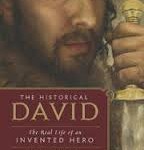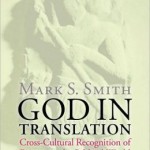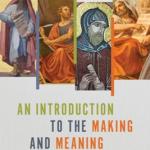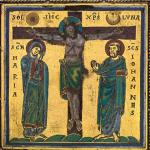 Here is a short video by Jacob L. Wright, professor of Hebrew Bible at Emory University’s Candler School of Theology in Atlanta, Georgia. He is the author of King David and His Reign Revisited (see here) as an interactive iBook, and an expanded version with Cambridge University Press (David, King of Israel, and Caleb in Biblical Memory
Here is a short video by Jacob L. Wright, professor of Hebrew Bible at Emory University’s Candler School of Theology in Atlanta, Georgia. He is the author of King David and His Reign Revisited (see here) as an interactive iBook, and an expanded version with Cambridge University Press (David, King of Israel, and Caleb in Biblical Memory).
This summer Wright taught the first Coursera course specifically on the Bible with the title: “The Bible’s Prehistory, Purpose, and Political Future.”
Coursera is part of the new MOOC (Massive Open Online Course) movement. Universities showcase the research of their leading faculty, allowing the public to listen to lectures, do assigned readings, take exams, watch interviews with top scholars, and engage with each other in discussion forums.
The response to Jacob’s course was astounding. Over the duration of the course, 27,000 students enrolled, from 174 different countries belong to the widest range of religions. Many were from East Asia, South America and the Middle East. A community of learners emerged whose members probed some of the most important questions related to the Hebrew Bible: Why was written? Why did it take shape in ancient Judah and Israel? What kind of literature is the Bible? And  why has it had such a major impact on societies form East to West?
why has it had such a major impact on societies form East to West?
The thesis of Wright’s course is that the Hebrew Bible is “a pedagogical project of peoplehood.” Its authors worked in response to the defeat of the kingdoms of Israel and Judah. They collected earlier writings and shaped them into a “road map” for a new form of political community, one that could survive without statehood and territorial sovereignty.
The Bible is, according to Wright, best understood not as religious scriptures but rather as an educational curriculum that creates, shapes, and molds a people in the aftermath of defeat. This suggestion seeks to come to terms with the diversity of the biblical writings: its historical narratives, laws, songs, laments, poetry, and wisdom collections.
This quote from the video below illustrates Wright’s position:
Perhaps what we need in our societies is a bible. Not the Bible, but a canon of shared texts, a body of writings that represents our diversity, a corpus of narrative, poetry, and songs that we and our children and future generations can internalize and draw upon as they engage in public discourse. Today there is widespread opposition to the notion of canon and national narratives, as they have historically tended to be discriminatory and prejudicial. But canons need not be closed, just as a narrative need not be simple, linear, or singular. The advantage they afford is they bring deeper historical dimensions to our societal debates and they allow us to appeal to a common set of texts. To be effective these new bibles must approximate the richness, complexity, and diversity of the Bible that we studied together, including story and song, law and wisdom. They must include diverse traditions. Above all they must stimulate reflection on what it means to be a people and inspire a sense of kinship, solidarity, and love for neighbor.
 The good people at Emory University have made a short video of Wright’s concluding reflections, and Wright asked me if I would be willing to post it here to make it available to those who wish to view it, and I was very happy to do so.
The good people at Emory University have made a short video of Wright’s concluding reflections, and Wright asked me if I would be willing to post it here to make it available to those who wish to view it, and I was very happy to do so.
For those watching the video who have a religious commitment to the Hebrew Bible/Old Testament and thus may not line up easily with Wright’s “educational” reading of it, listen closely anyway. What do you hear that might spark or challenge you to expand your thinking of the possible purposes for the ancient Israelites producing this body of work?
















